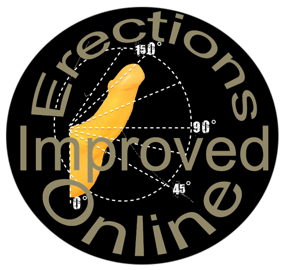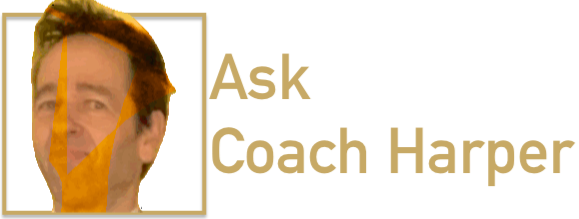The ErectionCoach.com - naturally.
ErectionCoach.com is the portal for all my various erection coaching methods.
You may have ED, reduced function or simply keen to see how hard you can be. I can help you get back what you once had, and possibly a bit more too.
 Sometimes our Erections need a certain something else.
Sometimes our Erections need a certain something else.͢→Erection Coaching has evolved, from focus upon the penis and into the wider subject of Virility and MANILITY.
A Virility Focus
Too much focus upon the penis can for some be counterproductive - putting way too much pressure on. Whereas to take a step back and step back and explore all that is behind an erection - that is the key to natural, sustainable erection confidence and control.
A (relevant) History of my Erection Coaching
Medical
There is a medical element underpinning all my coaching - gained from working within the NHS .20 years ago this formed the main stay of coaching.
Psychological
The psychological aspect can be the initial main influence or exert an indirect influence upon erection quality. Coaching men from all over the world and from many different walks of life has enabled me to individualise this aspect of erection coaching accordingly.
A Certain Something
Erections work on something else - a primal force or drive that we cannot and should not always try and make sense of - but simply encourage.
Normally I cut my unscripted playful exclamations, but this one made me smile, as in a nutshell it says it all!
Your erection more than likely thrives upon a primal energy or force within you :that responds to different cues, making this outtake clip actually very professional by being slightly unprofessional:
→ giving you a more formal manner - for the sophisticated you.
→ and the playful manner - for the primal you.
This clip:
- Demonstrating how I really, truly feel - I know I can help you.
- Highlighting my coaching approach is sometimes (not wholly) led by the primal drives which are still relevant today. We are not always as sophisticated as we like to think?
- A reassuring Attitude is given - positivity - a psychological factor in the erection process but also capable of exerting a force upon testosterone - a potent erection starter.
Gain Erection Control & Hardness - if you do as I instruct.
Natural
Believe in the natural ability of your body and mind to grow stronger. You do not need any medication, your body and mind together with your focussed training plan will strengthen the inputs into the whole process that erects your penis. You may need to strengthen just one of these inputs or many, as a chain is only as strong as the weakest link, that is why I personally coach you or if you want ultimate privacy - anonymously through app messaging whilst using my Online Video Course.
Don't let anything diminish your virility
 Don't Despair - there is so much you can do - naturally
Don't Despair - there is so much you can do - naturallyDespair
The normal functioning of your penis will undoubtedly mean so much to you. If it doesn't work as it once there's a risk the negative effects may erode how you feel.
Hope
When we lose, what we once took for granted, and manage to restore normal function ....WOW that is a tremendous feeling which means we appreciate our penis like never before.
Fulfilment
That is why I do this job for that WOW
moment that lasts for the rest of your life - when your penis once more responds how
you want - you'll appreciate it like never before and it is truly a wonderful feeling. What's more is - there's no reason why it can't continue for the rest of your life.
Age is no excuse
Unless you have a serious health condition that cannot be properly managed - there is absolutely no reason why you cannot enjoy great erections into your old age - your 80's and 90's..
It's a Mindset
If you doubt the ability of your body and mind's ability to strengthen your erection, or get back some, or all of what you once had - all you need do is tell me why, and I'll aim to reassure you with either the science, the medical or the primal angle - why you will be able to Make Your Erection Harder and keep normal function throughout your whole life - if you really want it.
Your Penis Your Mind (& the Primal You)

Either way you have a penis and you’re keen to make the most of it, perhaps not only for the pleasure it can give you (and others) but also for the inner strength and confidence it gives you to enrich your whole life.
ErectionCoaching
 Coach Harper
Coach Harper100% organic & natural.
Options to Choose:
→ Controlling your Erection
→ Sending Blood Flood - where you want it.
→ Using and gaining a Testosterone Boost.
→ Controlling Psychological Influences.
→ Tapping into the Primal You
→ Energising Your whole virility.
→ Appreciating all that you have.
Please feel free to tell me what you'd like to gain.


